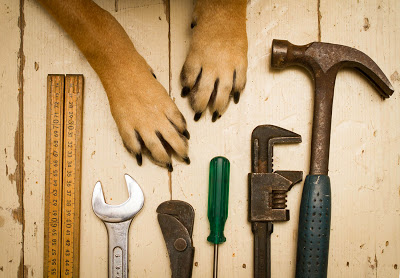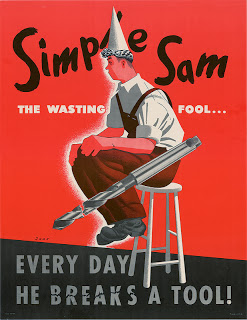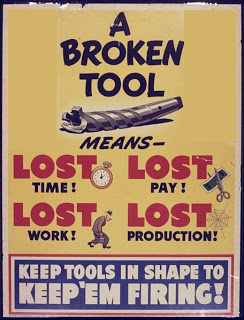Dogs
- Working Dog Conference: Bridging The Gap Between Science And Industry
(source)Hi Julie, how great was Dr Brad Smith's guest post to us about his research investigating dingo cognition? Responsiveness to humans, tool use and conspecific reaction to death - just all kinds of awesome! I'm so glad the editors...
- Aaws-struck: Effecting Change In Animal Welfare
Absolutely loving the Real Gosling tumblr - this made my week!Hey Julie! Yes, I swear I'm not ignoring you or your questions and I will get back to you about all the juicy things you raised in your last post. But now I'm home from Canberra, I...
- Totally Aawsome
Hey Julie, Thanks for all that humping info – it’s humptastic!I am going to get back to you about humping in working dogs another day, as I want to give my response a whole post, which I can’t do today. Today I need to tell you about AAWS....
- Working Like A Dog
Hello Julie, Having consulted two of my fabulous friends who happen to be ‘real world editors’ I can happily report that the technically correct format would be “Hi there, Mia”. This is to clarify that my name is not ‘there Mia’, although...
- Dog Food Secrets Review: Is This Worth You Spending Money On?
Dog food has certainly progressed in recent years with a lot more science behind it all than ever before and this can largely be seen in the various adverts and marketing materials produced by the dog food manufacturers that all claim that their product...
Dogs
When equipment fails: paws and assess
 |
| Photo: Steven Pam |
There is an industry in Australia that relies on an integral piece of equipment, but the system behind product development process is flawed, and lives are at stake. From farm dogs to military explosive detection dogs, guide dogs to greyhounds, Australia’s working and sporting dog industry claims a 50-70% fail rate as normal. The welfare of these dogs is intimately linked to their working performance.
Practitioners invest resources in this equipment, only to find that the tool doesn't work. It’s unsuitable. It operates at the wrong speed. It breaks. It just doesn't do the work it was meant to - at least half of the time! In some industry sectors, the equipment fail rate is estimated as high as eighty percent. Waste units are disposed of and new ones sourced. Perhaps from a large scale manufacturer, perhaps from a private artisan, or some people go ahead and take a crack at making their own. Recycling within the industry is extremely low, at less than ten percent. The production of this equipment is currently inefficient; the industry has no validated minimum standards in place and the product lacks quality assurance.
Without objective review and subsequent improvement, this industry is leaving itself open to scrutiny by the media and risks losing public support. Review of this kind is common. In industrial design and quality management fields, validation of product integrity, ongoing review and updating of evidence-based best practice are standard. Re-purposing of surplus or malfunctioning stock into other areas rather than directly to landfill may require additional resources. However, this extra spend is important as tolerance for unnecessary waste in the 21st century is limited. Indeed, the sustainability and economic viability of this industry into the future relies on improved accountability, higher transparency and demonstrated responsibility.
Branson, Cobb, McGreevy (2012). The Australian Working Dog Industry Action Plan 2012. Australian Government Department of Agriculture, Fisheries and Forestry.
It can be an emotive topic, so let’s take the emotion out of it and objectively consider current practice.
A diverse industry, with four sectors operating in different domains, is dependent on one key piece of equipment. A tool that can vary in price from free to $40,000, can be purchased new or second hand, but is unequivocally required to get the job done. Hundreds of thousands of units are currently used daily throughout Australia in government, human health, sporting and private operations.
 |
| Source |
From an industry business and performance perspective, what should be done? A review of the purpose and production life-cycle analysis for this tool seems indicated? Absolutely. A review of how the equipment is being employed, handled, maintained and stored by practitioners? Yes. Perhaps a review of the training courses and educational materials available to the practitioners and the people who train them? For sure.
 |
| Source |
We owe this commitment to review and refine the production, management and education surrounding this device to the industry, the people involved and the tasks they achieve. It’s sound business practice. And we owe it to the dogs.
Hi Julie,
I wrote this because I wanted to consider if there was a good case to be made for improving the welfare of working dogs, without the emotion or emotive slant often inherent in animal welfare discussions.
This came about after recent conversations with people who have suggested my work towards improved working dog welfare is based on me 'loving dogs' or having bleeding-heart, idealistic expectations about the way dogs should be cared for. I hope I have been able to demonstrate that this is a) not about me, and b) that a good argument for objective review and assessment of how working dogs are produced can be made, even before adding consideration for the fact these are sentient animals with capacity to thrive or suffer as a result of how we manage their lives.
I'm looking forward to continuing these conversations at the Working Dog Conference 2013 next week.
Wish you were here,
Mia
Further reading:
Branson, Cobb, McGreevy (2010). The Australian Working Dog Survey Report 2009. Australian Government Department of Agriculture, Fisheries and Forestry.
Branson, Cobb, McGreevy (2012). The Australian Working Dog Industry Action Plan 2012. Australian Government Department of Agriculture, Fisheries and Forestry.
Kruger J. & Dunning D. (1999). Unskilled and unaware of it: How difficulties in recognizing one's own incompetence lead to inflated self-assessments., Journal of Personality and Social Psychology, 77 (6) 1121-1134. DOI: 10.1037//0022-3514.77.6.1121
Dunning D., Johnson K., Ehrlinger J. & Kruger J. (2003). Why people fail to recognize their own incompetence, Current Directions in Psychological Science, 12 (3) 83-87. DOI: 10.1111/1467-8721.01235
Ehrlinger J., Johnson K., Banner M., Dunning D. & Kruger J. (2008). Why the unskilled are unaware: Further explorations of (absent) self-insight among the incompetent, Organizational Behavior and Human Decision Processes, 105 (1) 98-121. DOI: 10.1016/j.obhdp.2007.05.002
Dunning D. (2011). The Dunning-Kruger effect: On being ignorant of one's own ignorance, Advances in Experimental Social Psychology, 44 247-296. DOI: 10.1016/B978-0-12-385522-0.00005-6
© Mia Cobb | Do You Believe in Dog? 2013
Dunning D., Johnson K., Ehrlinger J. & Kruger J. (2003). Why people fail to recognize their own incompetence, Current Directions in Psychological Science, 12 (3) 83-87. DOI: 10.1111/1467-8721.01235
Ehrlinger J., Johnson K., Banner M., Dunning D. & Kruger J. (2008). Why the unskilled are unaware: Further explorations of (absent) self-insight among the incompetent, Organizational Behavior and Human Decision Processes, 105 (1) 98-121. DOI: 10.1016/j.obhdp.2007.05.002
Dunning D. (2011). The Dunning-Kruger effect: On being ignorant of one's own ignorance, Advances in Experimental Social Psychology, 44 247-296. DOI: 10.1016/B978-0-12-385522-0.00005-6
 |
| Source |
- Working Dog Conference: Bridging The Gap Between Science And Industry
(source)Hi Julie, how great was Dr Brad Smith's guest post to us about his research investigating dingo cognition? Responsiveness to humans, tool use and conspecific reaction to death - just all kinds of awesome! I'm so glad the editors...
- Aaws-struck: Effecting Change In Animal Welfare
Absolutely loving the Real Gosling tumblr - this made my week!Hey Julie! Yes, I swear I'm not ignoring you or your questions and I will get back to you about all the juicy things you raised in your last post. But now I'm home from Canberra, I...
- Totally Aawsome
Hey Julie, Thanks for all that humping info – it’s humptastic!I am going to get back to you about humping in working dogs another day, as I want to give my response a whole post, which I can’t do today. Today I need to tell you about AAWS....
- Working Like A Dog
Hello Julie, Having consulted two of my fabulous friends who happen to be ‘real world editors’ I can happily report that the technically correct format would be “Hi there, Mia”. This is to clarify that my name is not ‘there Mia’, although...
- Dog Food Secrets Review: Is This Worth You Spending Money On?
Dog food has certainly progressed in recent years with a lot more science behind it all than ever before and this can largely be seen in the various adverts and marketing materials produced by the dog food manufacturers that all claim that their product...
